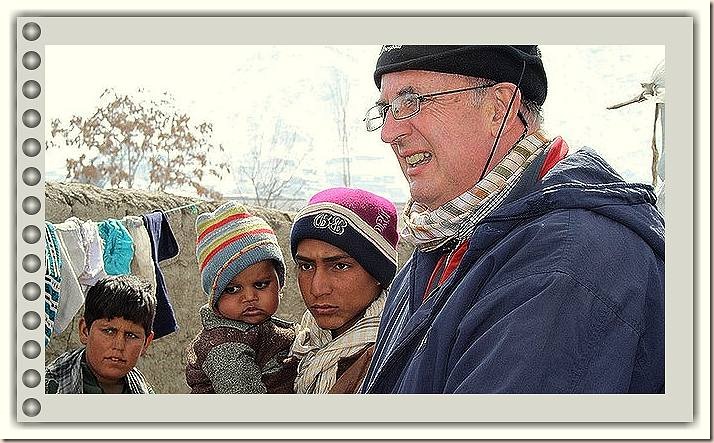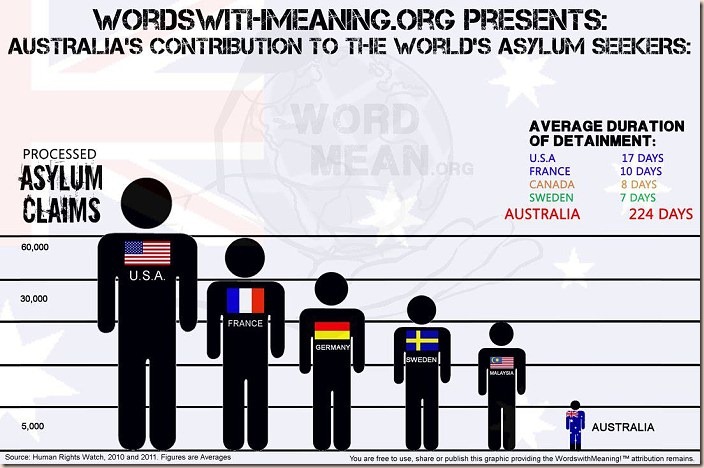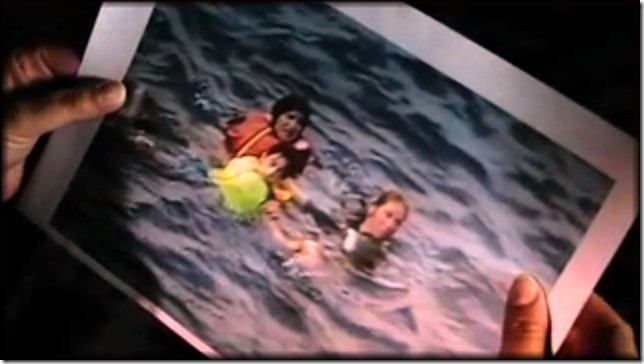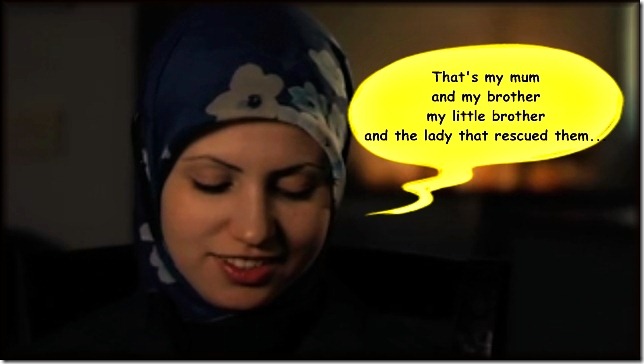First the email from Quitnet:
Hello Neil Whitfield!
Your Quit Date is: Monday, February 28, 2011 at 12:00:00 AM
Time Smoke-Free: 548 days, 20 hours, 1 minute and 20 seconds
Cigarettes NOT smoked: 27442
Lifetime Saved: 6 months, 29 days, 15 hours
Money Saved: $17,536.00
I did celebrate at the appropriate time on Facebook and Quitnet.
Meanwhile Go Back To Where You Came From hasn’t just been playing to the choir after all.
The second series of SBS TV’s ground-breaking refugee documentary/reality series Go Back To Where You Came From drew a solid 752,000 viewers nationally last night.
The result slotted Go Back To Where You Came From into 10th place on the overnight [Tuesday] rankings…
To command such a large slice of the audience is a major win for SBS. Previously only shows such as the hit British motoring show Top Gear delivered similar audiences to SBS.
The first series, which was screened last year, was watched by 524,000 viewers on its first night and ranked 23rd for the night. It then built to 569,000 and 600,000 for its second and third nights…
The second series features six celebrities: former government minister Peter Reith, comedian Catherine Deveney, singer Angry Anderson, former ombudsman Allan Asher, model Imogen Bailey and former "shock jock" broadcaster Michael Smith.
In last night’s first episode the group was split and sent to Kabul in Afghanistan and Mogadishu in Somalia.
The big result for SBS did particular damage to Ten, at least in perception terms. Go Back To Where You Came From out-rated every show on Ten last night.
In pure ratings terms such comparisons are not always sound – they’re a little like comparing apples and oranges – but it does serve to illustrate the particular ratings pressures on Ten at the moment.
Because of Go Back’s strong performance, SBS’s share was only a few percentage points behind Ten’s last night. That will no doubt set tongues wagging…
See also The danger is palpable in an inspired Go Back.

Peter Reith in Kabul: not a monster
Peter Reith appeared also in Leaky Boat last year. There he stayed in his sheltered workshop of memory and self-justification, but even then…
The information in this documentary is substantial and coherent. It is also very persuasive.
Fascinating to me – because it conformed with the serving sailors I spoke to around that time – was the honesty and clear sight of the military.
What the documentary added to the picture for the first time, as far as I know, were voices from the boat people themselves.
Made a nonsense of Reith and his scrap-book – though it was interesting to notice that the iron man does have twinges of conscience. Watch it again if you don’t believe me!
Full marks to Reith for participating in GBTWYCF, and he does have a point when he asks: if the number of asylum seekers taken into Australia were raised to 40,000 or 50,000 what would his critics do about the 50,000-and-first arrival? It isn’t a silly question. This and other questions also concern me. However:

We can do better than that – hardly a controversial statement in my opinion.
I would like to repeat a remark I made last night on Facebook though – a note to self as much as anything.
Go Back to Where You Came From part 2. Very thought-provoking and best given some hard thought not knee-jerk reactions of whatever kind. Glib self-righteousness is just too easy and I admit I have been known to indulge myself.
I think we rather miss the point if we just dwell on anything crass someone like Mike Smith may say. The personal dynamics of the participants have become extremely interesting and if GBTWYCF makes us all a bit more willing to listen and a bit more circumspect and a bit more aware of the complexity and sheer scale of the issue – and, as much on the left as on the right, a bit less parochial and myopic – it will have done everyone a favour. Friday’s debriefing and discussion will be well worth seeing.
You are well advised the boycott anything from this mob though:  . Now there is something the country really does not need – ever! We have been down this road under other names before.
. Now there is something the country really does not need – ever! We have been down this road under other names before.
Relevant in its way is Anonymity powers the cudgels in hatesphere by Elizabeth Farrelly in today’s Herald.
Anyway, all hell broke loose. By breakfast, my humdrum little blog had 50 comments and a thousand hits. By day’s end, almost 4000.
I was called a pompous prat, a rude and viscious (sic) idiot, an incredibly stupid woman, a small sad person, a pompous git, an old commie bat, an absolute wanker, a poor little suffering Doctor princess pet, a moron, an imbecile, a pestiferous little idiot, a selfish fool, an arrogant conceited woman, an old tart, an old fart, a dolt, lord of the bicycle paths, a wowser, pathetic, despicable, weak, dishonest and a complete f—wit.
"That people can anonymously abuse someone in public is not freedom of expression," said author and essayist John Ralston Saul during a conversation last week with members of Sydney PEN. "It’s slander. It’s not taking responsibility for your views. It’s not citizenship."
His critique of cyberspace’s role in "the rise of secrecy as an acceptable way of grabbing power" resonated strongly with me, especially considering my experiences in the digital hatesphere.
There’s a bus you see round town that bears, in similar vein, a quote from Peter Cundall: "The greatest power that ordinary people have … is to tell the truth."
Both presume that "ordinary people" are oppressed by the secrecy of governments and corporations, which is no doubt true. But in the blogosphere the boot is on the other foot. There, it’s so-called "ordinary people" for whom secrecy becomes both mask and cudgel.
Which is not about immigration issues but about the way we conduct discussion.
See also How do we escape the hysteria that threatens to erode public debate? by Peter Beaumont.
…The internet, it was once claimed by theorists such as Clay Shirky, author of Here Comes Everybody, was supposed to be democratising and empowering, giving a voice to those marginalised by the elite of opinion formers dominating the media and politics.
These days, even Shirky has moved to distance himself from that earlier utopian idealism, telling Journalism.co.uk three years ago he feared that he, like others, had got it wrong and that public pressure via the internet, far from leading to "democratic legitimation", could be seen as "just another implementation layer for special interest groups".
All of which leads to an inevitable question – whether our new developing public discourse, largely mediated online, has made our conversation more open, democratic and accountable? Or, instead, more fragmented and poisonous?
Among the pessimists has been the US academic Cass Sunstein, who was early in proposing a more dystopian picture of how debate was being shaped online, noting a fundamental contradiction. "New technologies," Sunstein has suggested, "including the internet, make it easier for people to hear the opinions of like-minded but otherwise isolated others."
He noted that while the internet was efficient in bringing together virtual communities of interest, it also encouraged participants "to isolate themselves from competing views… [creating a] breeding ground for polarisation, potentially dangerous for both democracy and social peace"…
In that spirit I again commend Peter Reith:
So, would I do it again? No, but the real success of the series is the extent to which the audience is encouraged to better understand the issues and promote informed debate. I know that sounds pretty mundane, but it’s the stuff of a functional democratic society.

